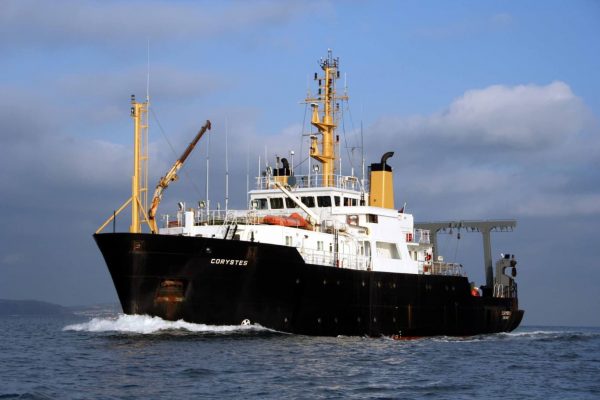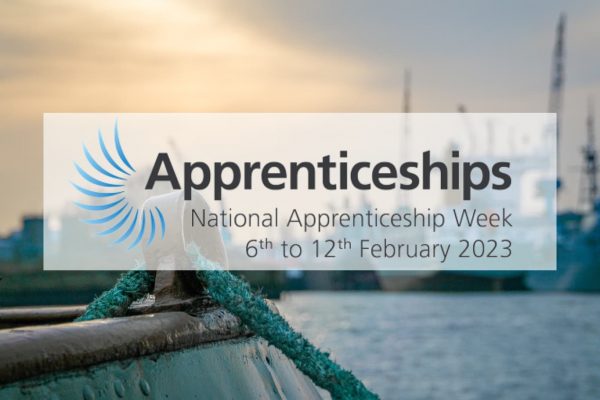Maritime Industry Faces Green Skills Gap: Insights from LinkedIn’s Global Green Skills Report
UK Workforce Falls Behind in Acquiring Green Skills for the Maritime Sector’s Sustainability Goals by 2030
The maritime industry in the United Kingdom plays a pivotal role in the country’s transition towards decarbonisation and achieving its ambitious green targets. However, according to LinkedIn’s annual Global Green Skills report, the nation’s workforce is lagging in acquiring the necessary green skills required for this transition. As the demand for sustainable maritime jobs continues to grow, the gap between supply and demand is widening, posing a significant challenge for the industry.
Insufficient Green Skills in the UK Workforce
LinkedIn’s report reveals that only one in eight British workers possess skills such as climate action planning or sustainable design, placing the UK behind major economies like Germany and France. The shortage of green skills becomes more evident compared to the European Union’s average. This shortage of qualified individuals is a cause for concern, especially considering that nearly one-third of all job advertisements in the UK last year required at least one green skill. Similar trends were observed across the 48 countries surveyed, where the median increase in demand for green talent was 12.3% compared to 22.4% for green jobs.
Impending Skills Shortage
The growing gap between employer requirements and the availability of skilled talent raises concerns about an impending skills shortage that could impede the UK’s green ambitions. This shortage is apparent in rapidly growing low-carbon roles such as heat pump technicians. There are fewer than 3,000 technicians, while the government’s ambitious installation targets call for as many as 150,000. Moreover, concerns about the lack of solar power and wind turbine engineering skills in the British workforce have been raised, further exacerbating the skills gap.
Expanding Green Skills Across the Maritime Industry
Green skills are crucial not only in specific roles but across various sectors of the maritime industry. Biodiversity conservation, waste management, and pollution control are pertinent concerns for businesses of all kinds within the industry. The sector with the highest concentration of green jobs is farming, ranching, and forestry, closely followed by construction and utilities. Even traditionally non-green industries, such as oil and gas, demonstrate a significant demand for green talent due to LinkedIn’s broad definition of green skills.
Challenges in Professional and Financial Services
Green skills shortages are also evident in professional and financial services, which have experienced a 14.5% increase in green jobs between 2022 and 2023. These sectors require individuals with technical expertise in sustainability and environmental, social, and governance (ESG) principles and other skills such as data literacy and the ability to navigate large organisations. Meeting these diverse skill requirements poses a significant challenge for companies in these sectors, as stated by Nicola Stopps, CEO of consultancy Simply Sustainable.
Addressing the Green Skills Gap
To bridge the green skills gap, concerted efforts are required from policymakers, businesses, and educational institutions. The UK’s Green Jobs Taskforce predicts that the energy transition will ultimately affect one in five jobs. A 2021 Deloitte survey indicates that 75% of respondents expect sustainability skills to be necessary for “all” jobs by 2050. Therefore, it is essential to establish a UK-wide body that promotes green jobs and offers incentives to businesses investing in their employees’ green skills, such as 130% tax relief. Strengthening the connections between education and industry will create clearer pathways for graduates and career switchers to enter sustainable maritime careers.
Government Initiatives and Business Engagement
The government has taken a positive step by announcing 9,000 free or subsidised courses for individuals interested in becoming heat pump technicians. Businesses can also play a vital role by adopting inclusive recruitment practices and targeting culturally diverse young people, inspiring them to pursue green careers within the maritime industry. Furthermore, businesses should engage in wider recruitment practices by hiring individuals without previous green experience for green job roles, such as ‘solar consultants or ‘sanitation engineers,’ as observed in the United States.
Overcoming Financial Concerns
The financial aspects of low-carbon jobs often raise concerns among potential candidates, as a study conducted by the London School of Economics found that these jobs may demand higher technical skills without necessarily offering better pay than average. However, LinkedIn’s data suggests that the demand for green jobs remains steady even during economic downturns. Communicating this resilience to workers struggling with the cost-of-living crisis could alleviate their hesitations and encourage them to develop green skills.
Conclusion
The maritime industry must recognise the urgent need to bridge the green skills gap to accelerate the transition towards a sustainable future. Collaborative efforts from policymakers, businesses, and educational organisations are essential in achieving this goal. By investing in targeted reskilling programs, on-the-job training, and inclusive recruitment practices, the maritime industry can build a skilled and diverse workforce capable of tackling the challenges posed by climate change.




